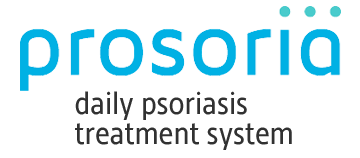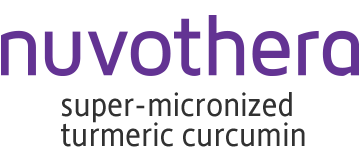
Our skin is a living organ that changes over time. Skin cells typically regenerate quickly, but factors like sun exposure and aging slow down this process. Aging is amplified by continuous exposure to toxins, a lack of nutrients, and a weak skin barrier. As we age our bodies become prone to inflammation, a process where the immune system releases chemicals that produce an inflammatory response. Over time this can lead to a range of diseases as well as degradation of collagen, the protein that gives skin its structure and suppleness. The key ingredients for healthy skin are to maintain a simple beauty routine and a balanced lifestyle, reduce inflammation, build collagen, and protect the skin's natural barrier.
Here are some tips to keep your skin looking youthful, supple, and radiant.
1. Wash Daily with a Gentle Cleanser
A gentle cleanser protects the skin's moisture barrier and cleanses without stripping beneficial oils. Cleansers with a low pH maintain optimal skin balance. Begin by rinsing your face with cold water and massage gently in circular motions. Aggressive scrubbing can irritate the protective skin barrier and harm the microbes on your skin. According to a recent study, skin conditions like rosacea, acne, and psoriasis can either be caused or provoked by a microbe imbalance. This is because of the strong correlation between skin microbiome health and immune function. Evidence shows that balanced skin microbiome can even fight against certain skin cancers.
2. Apply a Retinoid
Retinoids are a vitamin A-based treatment that minimizes pore size, fades hyperpigmentation, and repairs environmental and biological oxidative stress. Retinoids when used daily restore skin tone, promote skin cell turnover, and stimulate collagen production to help thicken the skin. After sunscreen, it’s one of the best preventive anti-aging ingredients for all ages. It also the most effective ingredient that is proven for reducing fine lines and wrinkles.
3. Exfoliate Weekly
Exfoliating with gentle skincare products helps remove layers of dull skin for a brighter complexion. The best exfoliating products contain alpha-hydroxy acids (AHAs) like glycolic and lactic acid. AHA’s dissolve the bond between skin cells to allow the removal of dead cells and increase the thickness of deeper layers of the skin. Acid-based exfoliating treatments are found in toners, serums, and peels. AHAs help fade uneven pigmentation and contain properties that both exfoliate and moisturize the skin.
4. Use SPF
Be mindful of sun exposure to prevent the signs of aging. Make sure to wear protective clothing when outside for extended periods of time. According to a recent study, daily use of broad-spectrum SPF 30 may visibly reverse the signs of existing photo damage and prevent additional sun damage. Researchers suggest the daily application of SPF gives skin a chance to heal and regenerate from past exposure to harmful UV rays. Look for a moisturizing sunscreen that contains antioxidants like green tea, vitamin C, and vitamin E. Some plant foods, such as turmeric, have natural SPF qualities. The sun's radiation increases the expression of MMP-2, an enzyme that damages collagen between the layers of skin. Turmeric helps prevents sun damage by inhibiting the production of MMP-2 and reducing age spots from past exposure to UV rays.
5. Microneedle at Home
Microneedling is used to diminish scarring, sunspots, large pores, and wrinkles. The method involves micro-puncturing the skin with tiny needles to tighten connective tissue and improve skin tone and elasticity. This at-home treatment is best used with high-quality serums that contain ingredients such as vitamin-c, hyaluronic acid, peptides, or growth factors. Microneedling also helps serums penetrate and absorb deeper into the skin.
6. Eat Whole Foods
The old adage is true, you are what you eat. Beauty is from within. Nutrition is just as important as skincare. Keep your gut healthy and your skin will reap results. Vitamin-C is known to increase levels of hyaluronic acid and collagen in the body. Vitamin-C rich foods include oranges, red peppers, garlic, kale, cilantro, brussel sprouts, broccoli, and strawberries.
Omega-3 fats found in flaxseed, chia seed, walnuts, and algae help the body renew skin cells and improve elasticity. Algae is rich in essential amino acids and a variety of vitamins including vitamins A, B, C, and E. The metabolites in algae inhibit enzymes that break down collagen in the skin as well as adding moisture to the skin.
7. Take Turmeric Supplement
Turmeric and Curcumin have many medicinal, antimicrobial, and anti-inflammatory properties that preserve overall vitality. Turmeric is a staple in Ayurvedic medicine, one of the world's oldest healing practices. Antioxidants and plant compounds in turmeric are known to enhance powerful enzymes that delay the aging process by soaking up free radicals and stimulating collagen and elastin production in the skin. Protecting against free radical damage is essential to protecting collagen from sun damage and it helps maintain a strong skin barrier. Turmeric is a powerful herb known for its ability to revitalize skin and promote immunity. Curcumin is the most active and beneficial antioxidant found in turmeric. Research studies suggest curcumin prevents moisture loss and aging before it starts. Curcumin targets specific pathways involved in the control of the cell cycle, inflammation, and oxidative stress. Curcumin also detoxifies the liver to eliminate heavy metals in the blood. The amazing benefits of turmeric curcumin are best utilized orally by taking supplements. However, turmeric is fat-soluble and not easily absorbed. Nuvothera’s super-micronized formula is a good maximum potency turmeric supplement because its microparticle formulation is water-soluble to allow for maximum absorption and uses the full turmeric root and curcumin for high potency. This product does not need any absorption enhancers or black pepper.
8. Avoid Harmful Foods
Researchers suggest the artificial and natural hormones in milk may throw your hormones off balance and trigger inflammation, wreaking havoc to the skin and overall health. Cow’s milk contains casein and whey protein that raise levels of hormone insulin-like growth factor-1. Instead opt for almond, oat, macadamia, or hemp milk.
Sugar increases blood insulin levels and triggers a release of hormones that cause gut and skin inflammation. When you consume sugar, your body goes through a process called glycation, a covalent attachment of a sugar to a protein or lipid that increases inflammatory cells in your body. The proteins in the skin are most prone to glycation. Collagen and elastin bind to sugars which causes them to become weak and show on the skin surface as wrinkles, sagginess, and a loss of radiance. An all-natural sugar alternative deemed “Buddha fruit” has been used for centuries in Chinese medicine. Monk fruit has zero calories and is much sweeter than regular sugar. It gets its intense sweetness from unique antioxidants called mogrosides, currently being studied for its anti-inflammatory and antioxidant properties that may keep blood sugar levels stable and prevent cancer. White sugar and high fructose corn syrup increase the rate of glycation by ten times compared to healthy carbs like whole grains, sorghum, oats, amaranth, quinoa, and brown rice. Furthermore, green tea has been proven to interfere with the glycation process and stimulate collagen synthesis.
9. Add Anti-Aging Oils to Skincare
Essential oils are plant extracts made from flowers, leaves, and seeds. Researchers conclude essential oils may affect heart rate, stress levels, blood pressure, breathing, and immune function. When choosing oils, opt for high-quality, certified pure-grade essential oils. First, test on a patch of skin to make sure it doesn't cause irritation. Apply with a carrier oil like jojoba, rosehip, olive, argan, or almond oil. Carrier oils moisturize the skin and help the oils better absorb into your skin.
Rosemary is a fragrant antimicrobial herb that helps regenerate new cells, increase circulation, and keep skin hydrated and toned. Rosemary is enriched with antioxidants, phytonutrients, and essential acids. This aromatic herb detoxifies the body and treats skin infections like dermatitis, psoriasis, and eczema.
Other beneficial oils include frankincense, sandalwood, lavender, clary sage, and ylang-ylang.

